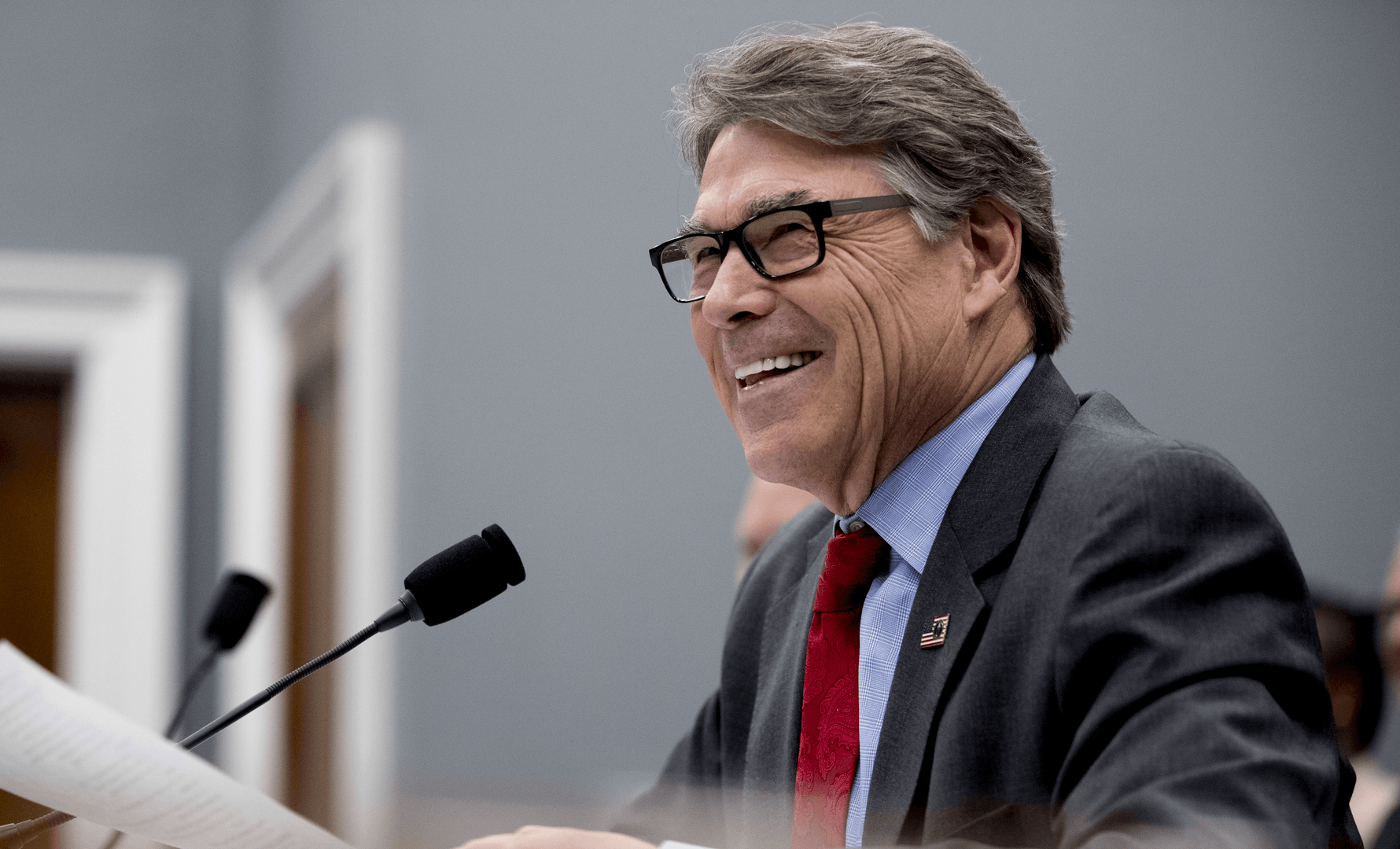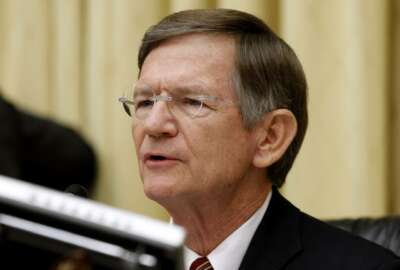
Perry defends proposed 2020 budget despite cuts to ‘critical’ programs
Lawmakers say a decrease in funding for Energy's 2020 budget could hurt "critical" energy and national security programs, as well as global competitiveness. Sec...
Lawmakers have some concerns about proposed Energy Department budget cuts involving critical nuclear energy and national security programs. Rep. Marcy Kaptur (D-Ohio), House Appropriations energy subcommittee chairwoman, told Energy Secretary Rick Perry the budget’s decrease in funding could put the United States at a disadvantage in terms of global competitiveness and resilience.

The $37.1 billion budget request is a step up from last year’s proposal, but it shows an 11 percent decrease in funding from fiscal 2019 enacted numbers. If passed, the 2020 budget would provide: $2.3 billion to secure energy independence and fund more affordable and reliable energy sources; $5.5 billion in science funding for research and development, and maintenance of National Laboratories; and $23.7 billion to modernize the U.S. nuclear deterrent and stockpile, and to continue progress at nuclear clean-up sights.
The remainder would be invested in artificial intelligence and cybersecurity initiatives, according to the president’s budget request.
Kaptur said the administration may be investing more in certain areas and not enough in those that should be take priority.
“The energy future of our country cannot be left to chance,” Kaptur said during a March 26 budget hearing. “It depends on workers in clean energy. It depends on transition in coal country. It depends on a competitive U.S. industry. It depends on students and teachers and scientists who rely on the Department of Energy’s investments to solve our toughest energy challenges.”
Perry told the committee that DOE has advanced in many of its goals since the previous fiscal year and is committed to making sustainable investments. He said success should not be measured by how much money is spent, but by the results of those investments.
Cuts to critical programs, jobs
The request eliminates funding for many programs lawmakers deem critical. This includes an 86 percent cut to the Office of Energy Efficiency and Renewable Energy (EERE) funding. Without this funding, Kaptur said, the Weatherization program — which addresses hidden pockets of energy asymmetry — would be eliminated altogether.
Other programs that could take a hit are the Office of Science, which funds research in vital areas such as supercomputing, biology and environmental science, chemistry and materials research, and the Advanced Research Projects Agency for Energy. This marks the third time the White House has proposed eliminating ARPA-E, which supports emerging energy projects, such as next-generation batteries and improving the basic components of solar panels.
Overall, the agency would see a 59 percent decrease in funding for energy research and development. Kaptur also stressed how cuts to the research programs could eliminate more than 6,000 jobs.
“Looking at U.S. research spending relative to the size of our economy, the United States already dropped from 8th to 11th place between 2009 and 2015; we’re sliding backward,” Kaptur said. “We must sustain investments in innovation to maintain U.S. competitiveness in the future … How do we keep up?”
Perry said even with cuts in the budget, the agency will appropriate the funds in line with Congress’ wishes, as well as invest more in areas such as supercomputing — including running the two fastest computers in the world — and artificial intelligence.
Rep. Debbie Wasserman-Schultz (D-Fla.) also probed the secretary on EERE funding and how the lack thereof could shut down the office entirely. Wasserman-Schultz went as far as to say the committee would likely disregard the budget proposal on this alone.
Perry again stressed the department’s increased focus on R&D — such as the battery storage program — and not on numbers. In response, Wasserman-Shultz called his remarks a “Texas two-step answer.”
Research & development a priority
Related Stories
One example, Perry said before the committee, is the proposed Cybersecurity Institute for Energy Efficiency and Manufacturing, an initiative the department announced in a March 26 press release. The agency will invest $70 million in the institute to develop technologies that advance competitiveness, energy efficiency and innovation.
“Improved cybersecurity can reduce risks as well as catalyze adoption of more energy efficient technologies in the manufacturing industry,” Perry said in the release. “This Institute will conduct early-stage research to help U.S. manufacturers remain resilient and globally competitive against cyberattacks.”
In all, the budget includes more than $215 million for research focused on nuclear nonproliferation and development. The committee shot down the potential 12 percent increase in weapons systems alone, as Kaptur said it’s not sustainable.
“With respect to nuclear weapons, this is not a budget that establishes clear priorities with a responsible plan to fund and execute those priorities,” Kaptur said. “Sustaining the nuclear deterrent is a national priority, but it must be done in a cost-effective manner. I must express serious concern [that] your request cuts key nuclear nonproliferation programs.”
Perry defended the administration. He said the department is moving in the right direction and already cutting costs.
“We’ve seen a 90 percent decrease in the cost of solar, we’re seeing some substantial increases of both our solar and our wind energy … So, I totally agree with you that the globe’s got some real challenges. But I think that the United States doesn’t get enough credit frankly for the work that we’ve done, the direction that we’re headed,” Perry said. “Can we do more? Yeah. Do we need to do more? Absolutely. But America can be a leader.”
Copyright © 2024 Federal News Network. All rights reserved. This website is not intended for users located within the European Economic Area.
Steff Thomas is a digital editor at Federal News Network.




